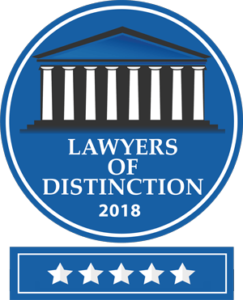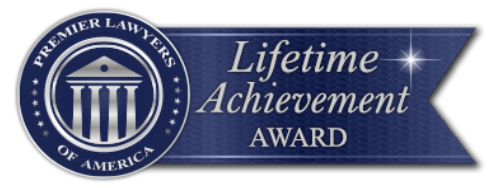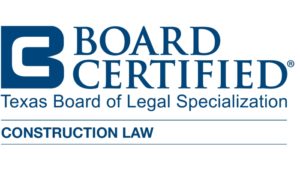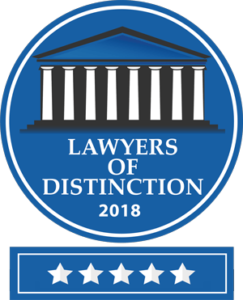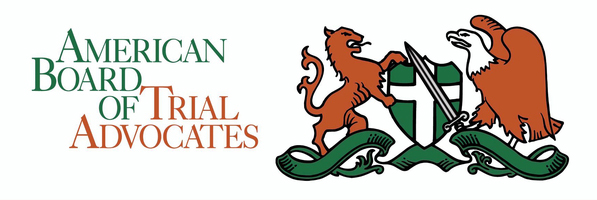The Texas Board of Nursing (referred to as the “BON” or the “Board”) is responsible for regulating the practice of nursing and is authorized by the Texas Nursing Practice Act (the “Act”) to investigate and discipline Licensees for violations of the Act and Board rules. The BON receives over 16,000 Complaints a year; however, not all complaints result in an investigation or disciplinary action by the Board. Many of the complaints received by the Board contain insufficient information about the Licensee’s identity, are not within the Board’s jurisdiction, are considered “minor incidents” or are about issues that, even if proven, would not constitute a violation of the Act.
The BON is comprised of six nurse members, three nurse faculty members, and four members of the public. The BON has the power to issue subpoenas, compel witnesses to attend hearings, and cause the prosecution of Licensees who violate the Act and/or Board rules. One of the BON’s primary missions is to investigate and adjudicate complaints filed against Registered Nurses (“RN”), Licensed Vocational Nurses (“LVN”), and Advanced Practice Registered Nurses (“APRN”) to “ensure that each person holding a license as a nurse in this state is competent to practice safely.” A Complaint can be initiated by the BON, a patient, a patient’s family, other nurses, former employers, law enforcement, and the Texas Department of Aging and Disability Services. In recent years, more Complaints have been filed with the BON than ever before and the BON is known for being one of the most aggressive licensing Boards in the state for investigating and punishing Licensees. The BON has the authority to recommend the following types of sanctions and penalties: (1) written warning; (2) public reprimand; (3) limitations or restrictions of the Licensee’s license; (4) suspension or revocation of the Licensee’s license; (5) assess a fine; (6) require the Licensee to submit to care, counseling, or treatment; (6) participation in an educational or counseling program; (7) practice under the direction of a registered or vocational nurse; or (8) abstain from the consumption of alcohol or use of drugs and submit to random periodic screening.
A BON Complaint is a serious matter that could significantly impact a Licensee’s career. A Licensee who has received notice of a Complaint should immediately contact a qualified healthcare defense attorney to assist the Licensee with understanding the Complaint allegations, the Complaint process, and to defend the Licensee through final disposition of the Complaint. Lovein Ribman’s health care attorneys are well versed, tried, and testing in defending Complaints filed with the BON. If you have received notice of a Complaint or are preparing for a final contested case hearing, please call us at (888) 362-2483 or submit the Contact Form for a free consultation. To learn more about the Complaint process, please read below.
The Complaint and Initial Investigation
Upon receipt of a Complaint, the BON will first determine the severity of the allegations and the potential harm complained of. The most serious offenses are given priority. The BON will also set a deadline to complete its initial investigation which is required to be completed within one year, subject to an extension for cause. During the course of the investigation, relevant evidence is obtained and witnesses are contacted. While the majority of most investigations are conducted through the mail and over the phone, on-site investigations are occasionally conducted. After relevant evidence has been obtained, the investigations team reviews the evidence in order to determine whether or not a violation of the Act occurred. Based on the review of the evidence, some cases are closed, and, depending upon the specific type of closure, the Complaint and all evidence will either be expunged immediately from the Licensee’s file or expunged after being retained for a specific period of time according to the Board’s retention policies.
Cases in which the evidence indicates that a sanction against the Licensee is needed in order to protect the public will result in an Order of the Board and will include both the sanctions and any requirements placed on the Licensee for retention of his/her license. Possible sanctions include remedial education, fine, warning, reprimand, suspension, probation, and revocation. Most Board Orders are public information and, except for deferred disciplinary orders that have been successfully completed, are permanent designations in the licensure records of the nurse.
After conducting the preliminary investigation, the BON will notify the Licensee that a Complaint has been filed and the nature of the allegations, unless doing so would jeopardize the investigation. This notice is typically referred to as a “Letter of Investigation”. A Licensee will have 20 days to prepare a formal response to the Complaint to include supporting documentation in an attempt to demonstrate that the Licensee is in compliance with the Act and/or Board rules. This is an important stage in the process, in that it is the first opportunity the Licensee has to reframe the issues and set forth a defense. A Licensee who has received a Letter of Investigation should contact a qualified healthcare attorney to discuss the process and assist with preparing the response. See below for a discussion on responding to the Letter of Investigation.
Response to Complaint
As mentioned above, the Licensee will have 20 days to respond to the Letter of Investigation. This is the first opportunity a Licensee has to set forth its defense and potentially convince the BON to dismiss the Complaint at this initial stage. In that regard, a well written response can demonstrate to the BON that the allegations complained of are unsupported, without merit and should be dismissed. The response should be specifically tailored to avoid providing extraneous information that could inadvertently support a violation and/or expand the BON’s investigation. Before preparing the response, pursuant to Section 301.460 of the Act, a Licensee or his/her attorney, can request the BON to produce “all known exculpatory information in the BON’s possession and the information the BON intends to offer into evidence in presenting its case at a contested case hearing”, which may provide additional information about the allegations that can be used to prepare a more thorough the response. If the Complaint concerns a Licensee’s fitness to practice nursing, the BON may request that the Licensee submit to a forensic evaluation or a substance abuse evaluation. An examiner’s findings can greatly impact how the BON proceeds with the investigation and could lead to a dismissal or provide additional support for the Complaint. As such, the Licensee should consult with a qualified health care attorney who, based on prior experience, can assist with selecting the most objective examiners from the BON’s approved examiner’s list. After the Licensee’s response has been filed with the BON, the waiting begins. It is not uncommon for it to take months for the BON to further investigate and respond to the Licensee’s response.
The BON’s formal response may come in the form of a dismissal, a warning or reprimand, sanctions, a proposed Agreed Order, a request for an Informal Settlement Conference (“ISC”) or initiation of formal charges filed with the State Office of Administrative Hearings (“SOAH”). Please see the next section for a discussion of the procedures for informally resolving a Complaint.
Informal Settlement Process
The informal settlement processes typically begin with the BON responding to the Licensee’s response to the Complaint with offering the Licensee a proposed Agreed Order containing the investigative findings, conclusions of law, sanctions, and stipulated requirements necessary to ensure that the Licensee is safe to practice nursing. If the Licensee agrees with the terms of the Agreed Order, then the Licensee signs the order before a notary and returns it to the BON and the Complaint is resolved. If the Licensee does not agree with the proposed Agreed Order, the Licensee may submit specific suggested revisions to the proposed Agreed Order in writing for the BON’s consideration. If any of the submitted revisions are accepted, a new proposed Agreed Order incorporating the accepted revisions will be sent to the Licensee.
In some cases, and at the BON’s discretion, a Licensee may be invited to attend an Informal Settlement Conference (“ISC”) at the BON’s office in Austin, Texas. ISC’s are conducted by the Executive Director, or his/her designee, and are attended by the Director of Enforcement, one of the BON’s attorneys, and the assigned investigator, as well as other BON staff. A Licensee has the right to be represented by counsel at an ISC and given the nature of the proceeding; every Licensee should be represented by counsel at the ISC. During the conference, the Licensee (and his/her counsel) and BON staff will discuss the evidence, possible violations, and an acceptable settlement. At the conclusion of the majority of conferences, Licensees are informed of the panel’s recommended disposition of the Complaint. When the panel determines action is warranted to protect the public, a new proposed Agreed Order is mailed to the Licensee. As with other proposed Agreed Orders, the Licensee may sign the Agreed Order before a notary and return it or they may submit specific suggested revisions to the proposed Agreed Order in writing for the Board’s consideration.
Most disciplinary actions taken by the BON are public information and become a permanent part of the Licensure’s record. Disciplinary actions are printed in the BON’s quarterly newsletter and are also reported to the National Council of State Boards of Nursing, Inc., and the National Practitioner Data Bank (NPDB).
If the Complaint is not resolved through the above process, then the BON will file formal charges against the Licensee with the State Office of Administrative Hearings (“SOAH”) and a formal administrative hearing will be held in Austin. See below for a discussion of the SOAH Contested Case Hearing process.
The Contested Case Hearing (SOAH) and Appeal
If the Complaint is not resolved through the ISC process, then the Board will file a formal complaint with the State Office of Administrative Hearing (“SOAH”) to initiate a formal contested case hearing. SOAH is an independent agency that manages and conducts contested case hearings for over 60 state agencies, including the Texas Nursing Board. The mission of SOAH is to ensure that contested case hearings are conducted fairly, objectively, promptly, efficiently, and result in a quality and timely decision.
Upon receiving a formal complaint from the Board, SOAH will serve the Licensee with a written notice stating: (1) the date, time, location, and nature of the hearing; (2) a statement of the legal authority and jurisdiction; (3) reference to the particular sections of the statutes and rules at issue; and (4) a short plain statement of the factual matters asserted. The contested case hearing is similar to a civil trail wherein the parties are permitted to conduct formal discovery prior to the hearing, to include written discovery requests, depositions, and third-party subpoenas. At the hearing, both sides will have the opportunity to present witnesses, deposition testimony, and documents in support and defense of the claim. If the Board is seeking a denial or revocation of the Licensee’s license, then the Board will have the burden of proof, based upon a preponderance of the evidence. Licensees have the absolute right to be represented by counsel and should take advantage of this right given the formal nature of the proceeding and the severity a negative finding could have on the Licensee’s medical career.
After all evidence has been admitted and the hearing has been concluded, the SOAH Administrative Judge (“AIJ”) will issue a Proposal for Decision (“PFD”) with findings of facts and law, along with a determination as to whether a violation of the Act has occurred. The PDF is then submitted to the Nursing Board for a vote of final approval and imposition of sanctions if appropriate.
The decision will become final unless the Licensee timely files a Motion for Rehearing, which is an opportunity for the agency to correct any errors a party brings to its attention in the Motion. A Licensee then has 30 days from the decision or order becoming final to file an appeal in the district court for review of the agency’s decision. An appeal to the district court is not a re-trial of the evidence, but instead is more akin to a civil appeal, wherein no new evidence can be admitted. The Administrative Procedure Act allows the district court to uphold the decision or reverse and remand if the order is found to be arbitrary and capricious, an abuse of power, made in error, or rendered through unlawful procedure. If the district court denies the appeal, the Licensee may have the right to file an appeal up to the Texas Supreme Court.

